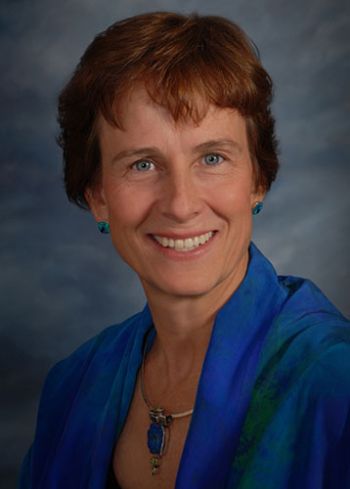
Congratulations to Christina Puchalski, M.D. ’94, RESD ‘97, director of the George Washington University (GW) Institute for Spirituality and Health and professor of medicine at the GW School of Medicine and Health Sciences, who was presented with the Humanities Award at the Annual Assembly of the American Academy of Hospice and Palliative Medicine (AAHPM) and the Hospice and Palliative Nurses Association (HPNA), Feb. 27.
The Humanities Award recognizes a person whose work has advanced the relationship between humanities and palliative care, and who has employed the discipline of the humanities to improve end-of-life care through community or professional education. The annual three-day event where Puchalski was recognized brought together nearly 3,000 physicians, nurses, and other healthcare providers to share research, clinical best practices, and practice-related guidance to advance the specialty and improve patient care.
Puchalski was one of ten leaders awarded for making a difference in the field. Puchalski is a pioneer in the movement to integrate spirituality into health care, both in the clinical setting and in the classroom. Notably, she co-authored Making Health Care Whole: Integrating Spirituality into Patient Care, which published the findings of a 2009 National Consensus Conference, which created models of spiritual care and implementation recommendations in palliative care. The Institute of Medicine (IOM) recognized Puchalski’s work in a 2014 report on Dying in America, citing recommendations for spiritual care of patients. In 2015, she served as a subject matter expert to the National Institutes of Health meeting on the IOM report, setting research priorities. This work has been continued in an international consensus conference, involving members of the World Health Organization, resulting in proposed standards of care and strategies in research, education, clinical care, policy and community engagement to further this work. Studies and implementation of the model and outcomes included a validation of the Faith/Beliefs, Importance, Community, Addressed in Care or Action (FICA) tool. This spiritual assessment tool, FICA, is used in clinical settings internationally.


